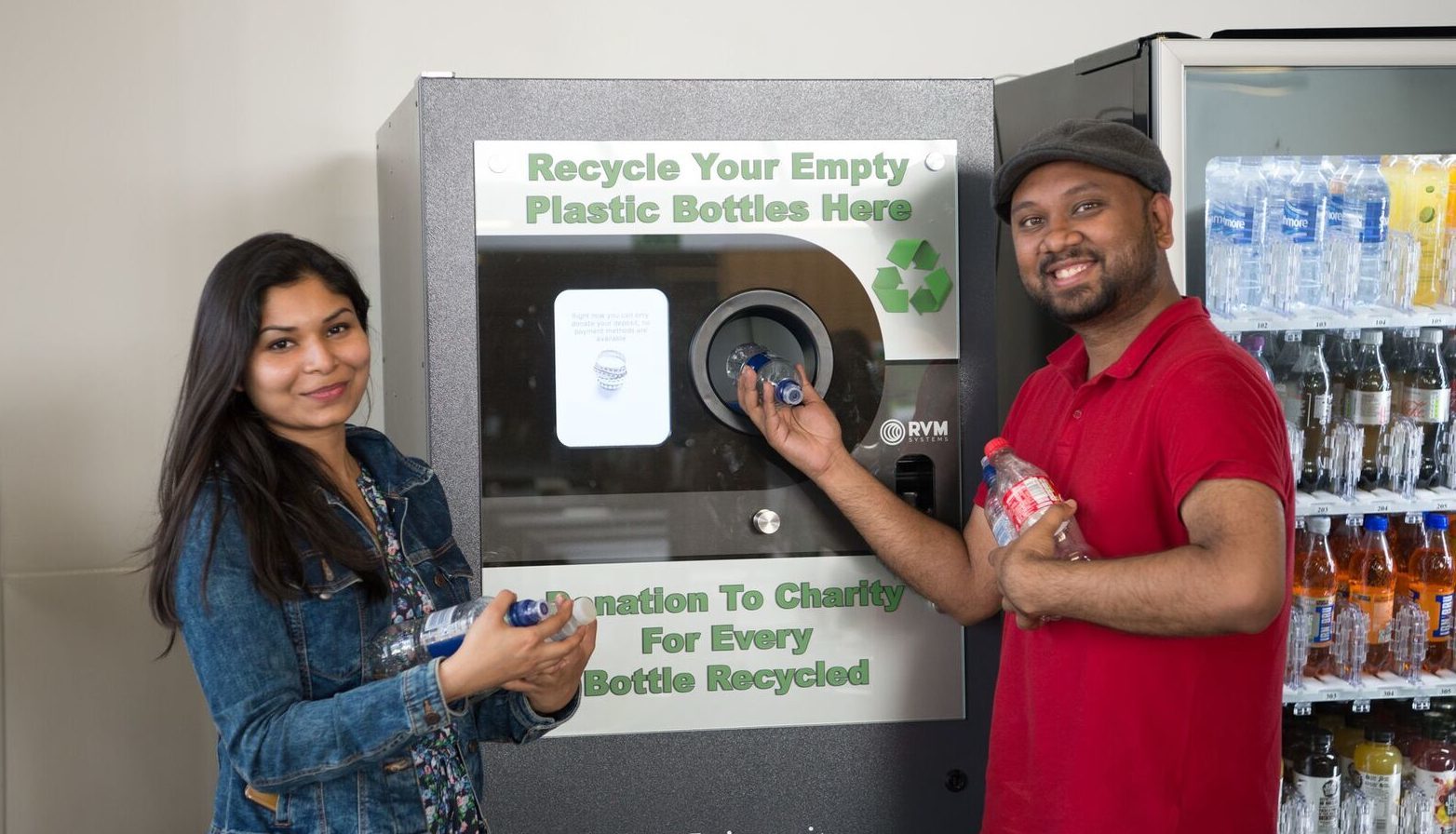
GLASGOW University are tackling plastic pollution with a new reverse vending machine that recycles plastic bottles.
It is the first UK university to install the machine which will make a donation to the Beatson Pebble Appeal for every container recycled.
The machine will be located at the University’s Fraser Building and will initially only accept plastic bottles.
After a trial period, users will be able to recycle drinks cans as well and will be given cash tokens worth 10p which they can then use in shops.
The Scottish Government announced last September that it will bring in a deposit return scheme for drinks containers and has launched a consultation on the issue.
The university said the trial period will last until the government rolls out a bottle deposit scheme around the country.
According to Reverse Vending, only 43% of the 13 billion plastic bottles sold each year in the UK are currently recycled, with 700,000 littered each day.
Scott Girvan, executive chef, retail manager of the university’s hospitality services, estates and commercial services, said: “We’re the first university to bring a ‘deposit-return ready’ reverse vending machine onto our campus.
“This is part of our drive to increase sustainability and reduce waste across the university.
Reverse vending has operated in Sweden since 1984 where 90% of household waste is recycled. In Scotland that figure is 44%.
During the trial period, the machine will only accept empty bottles bought on campus but will go on to accept them from any outlet.
John MacDonald, director of vending machine suppliers Excel Vending, said: “It’s easy to use: you just insert the bottle, which is crushed, compacted and dropped into a bag at the bottom.
“The machine allows greater control of the quality of the recyclable product, which prevents it becoming contaminated and destined for landfill.”

Enjoy the convenience of having The Sunday Post delivered as a digital ePaper straight to your smartphone, tablet or computer.
Subscribe for only £5.49 a month and enjoy all the benefits of the printed paper as a digital replica.
Subscribe